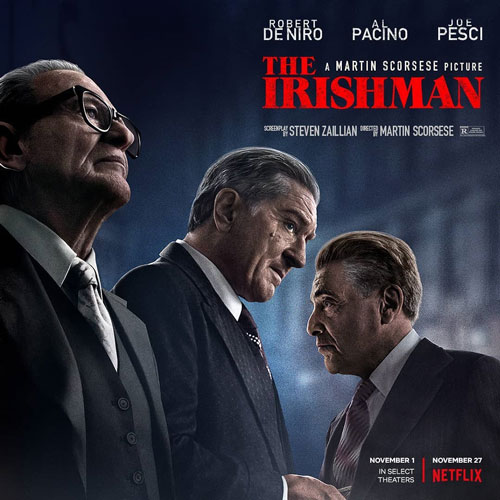
During Martin Scorsese’s press run for his new gangster saga The Irishman, he lamented about how younger generations seem to have forgotten Jimmy Hoffa and his impact, as does the protagonist Frank Sheeran (Robert DeNiro) at certain points through the story. I’m not among them, as I’ve always enjoyed Danny DeVito’s 1995 take on the Hoffa story starring Jack Nicholson, which I felt was a bit underrated and had some good fiery performances, especially on Jack’s part.
And it was in the back of my mind throughout Irishman, but not to where I wasn’t able to enjoy this new feature in spite of my comparisons. Scorsese’s retelling of the Teamsters leader is much longer of course, and opts for more of a slow-burn feel, though Pacino as Jimmy provides plenty of emotional fireworks on his part.
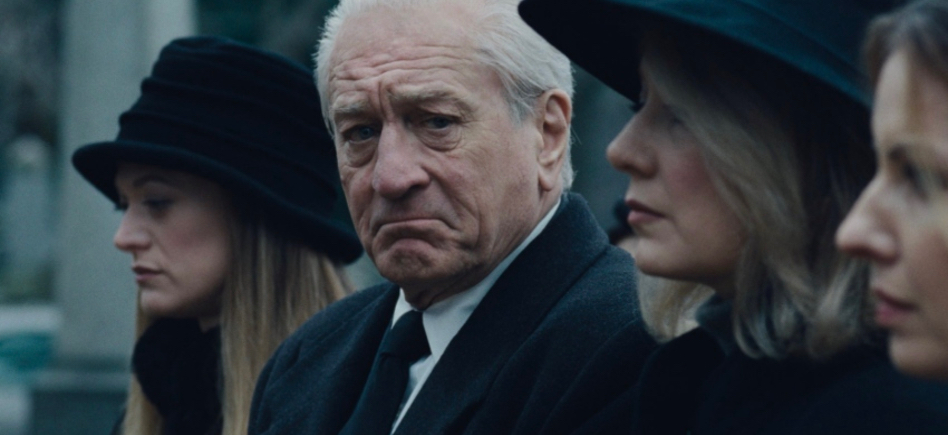
Frank’s life and way of functioning through it seem to eternally revolve around violence, and it’s a consistent element no matter how much humanity he tries to add to it. A former war veteran (and a shockingly brutal one at that) turned delivery trucker, he’s an ideal partner for crime boss Russell Bufalino (Joe Pesci) and eventually Hoffa himself. Everything seems fine at first, with their respective families gradually bonding, but once John F. Kennedy is elected in 1960 the mood changes.
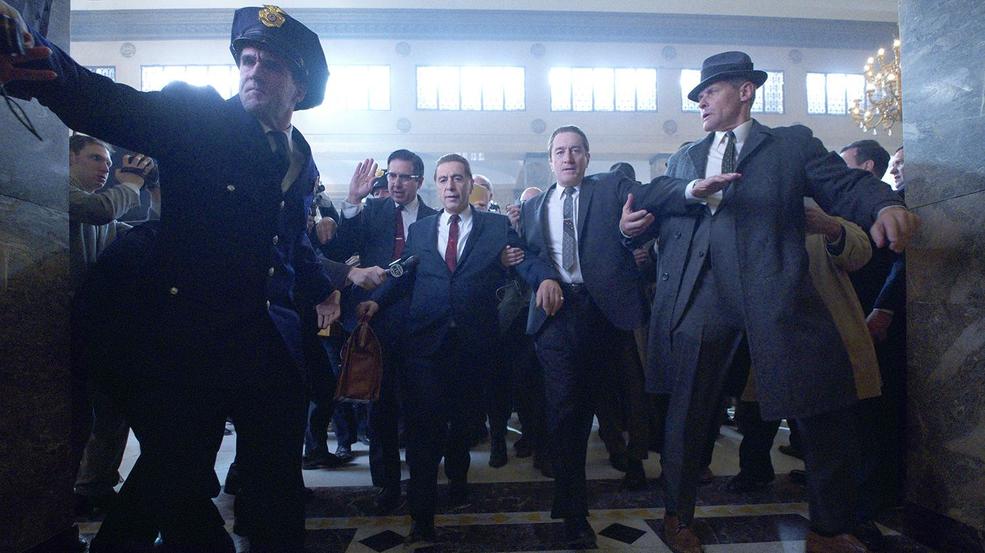
Halfway through the film the focus isn’t taken off Frank entirely, but Jimmy becomes the lead protagonist for a bit. He’s not only dealing with pressure from the Kennedys’ government but also rival mobster Tony Pro (Stephen Graham, in a damn fine performance). Hoffa can’t deal with losing his influence, and starts politicking against the mob to get his union power back- something that doesn’t sit well with Russell and the other gang lords, who declare it’s “what it is” and make Frank pass the message to the frustrated Hoffa.
What Irishman tries to do is balance the character study of Frank alongside the influence Hoffa had on labor groups and the politics of the time, as well as the links between politics and organized crime as a whole. This is why I do understand the lengthy run time, but there are some points where not much happens and I felt that a few cuts down to simply three hours would have made it feel a bit more intense for me.
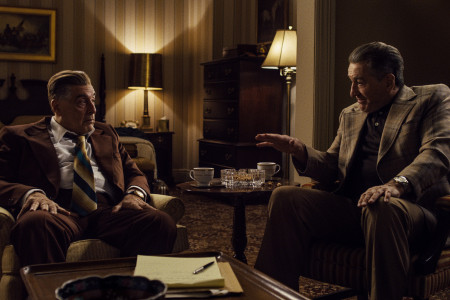
Still, the slow burn overall does work to this story’s advantage, and Martin never skimps on how graphic Frank’s line of work can be. It builds to a powerful conclusion where not only the grounded acting between DeNiro and Pacino especially stands out, but Anna Paquin as Frank’s daughter Peggy puts what we’ve seen into a powerful perspective.
Even though there’s some nice cinematography from Rodrigo Prieto with Frank and friends enjoying the high life, Irishman is generally designed to de-glamourize gangster life more so than Casino or Goodfellas did. Any sort of good energy Sheeran enjoys is fleeting due to who he’s chosen as friends, who are all on their own doomed paths.
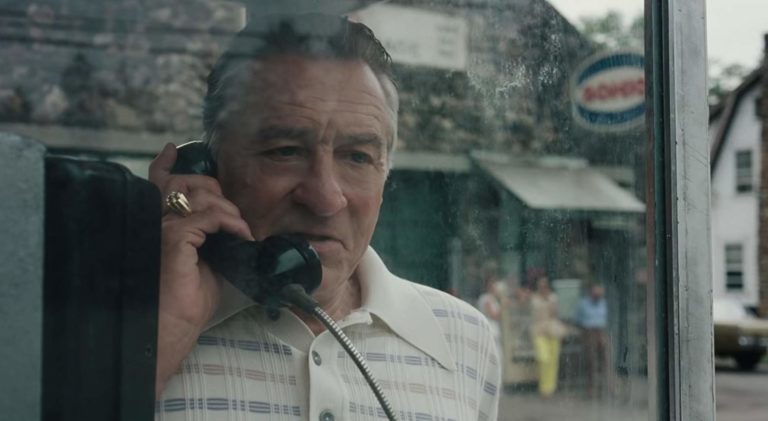
As remorseless as Frank is, we’re still meant to empathize with his conflicting loyalties between Hoffa and Bufalino, and all three lead performances- any de-aging CGI work aside- are as intriguing as you’d expect from Scorsese’s usual crew, and they haven’t lost anything in terms of holding the audience’s attention.
Pesci is much more nuanced here as opposed to the whirlwind of energy we usually expect from him, while DeNiro presents Sheeran as someone who wants friendship in his world but doesn’t know how to manage it in ways that don’t lead to death and destruction. At points Pacino gets amped to the same degrees he used as Big Boy in 1990’s underrated Dick Tracy, but there’s still plenty of narrative and emotional weight behind him chewing the scenery.
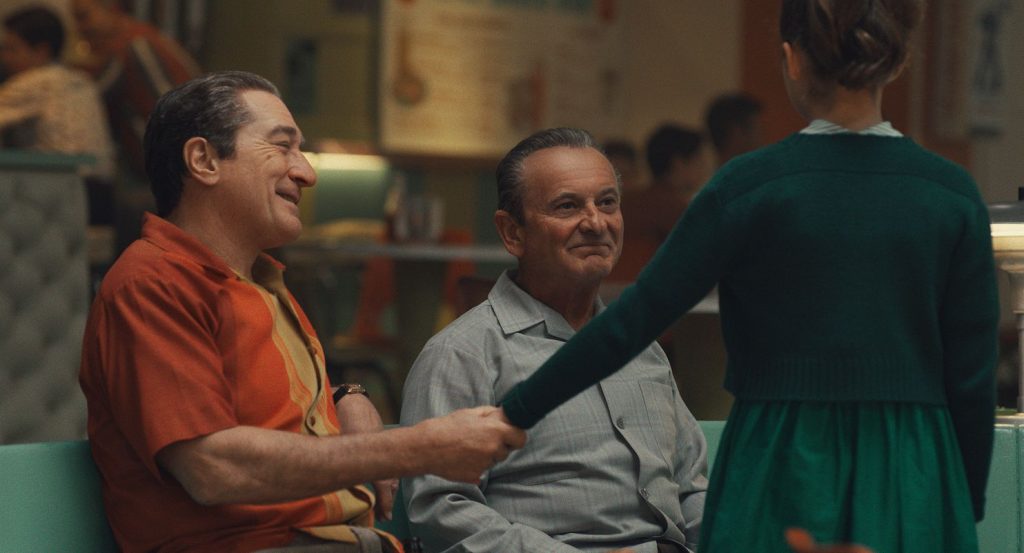
There really isn’t anything in The Irishman that would likely come as a shock to anyone somewhat familiar with Hoffa’s story (outside of how Scorsese interprets his eventual 1975 disappearance), but as an analysis on politics and the darker elements of human nature, it’s a solid work with some impressive performances from iconic actors. At times it’ll make you angry, happy, unsettled, a little sad, on the edge of your seat, and maybe hungry for a beer-steamed hot dog. If you’d had a chance to see it either in theaters or on Netflix, stop by @official_FAN on Twitter and let us know how you felt about it!
